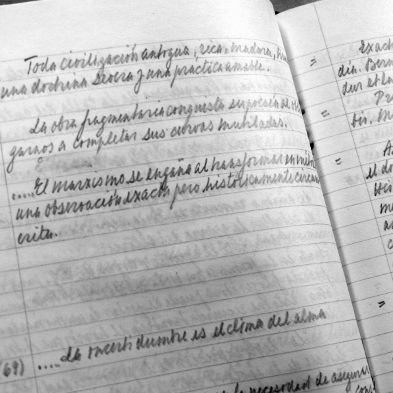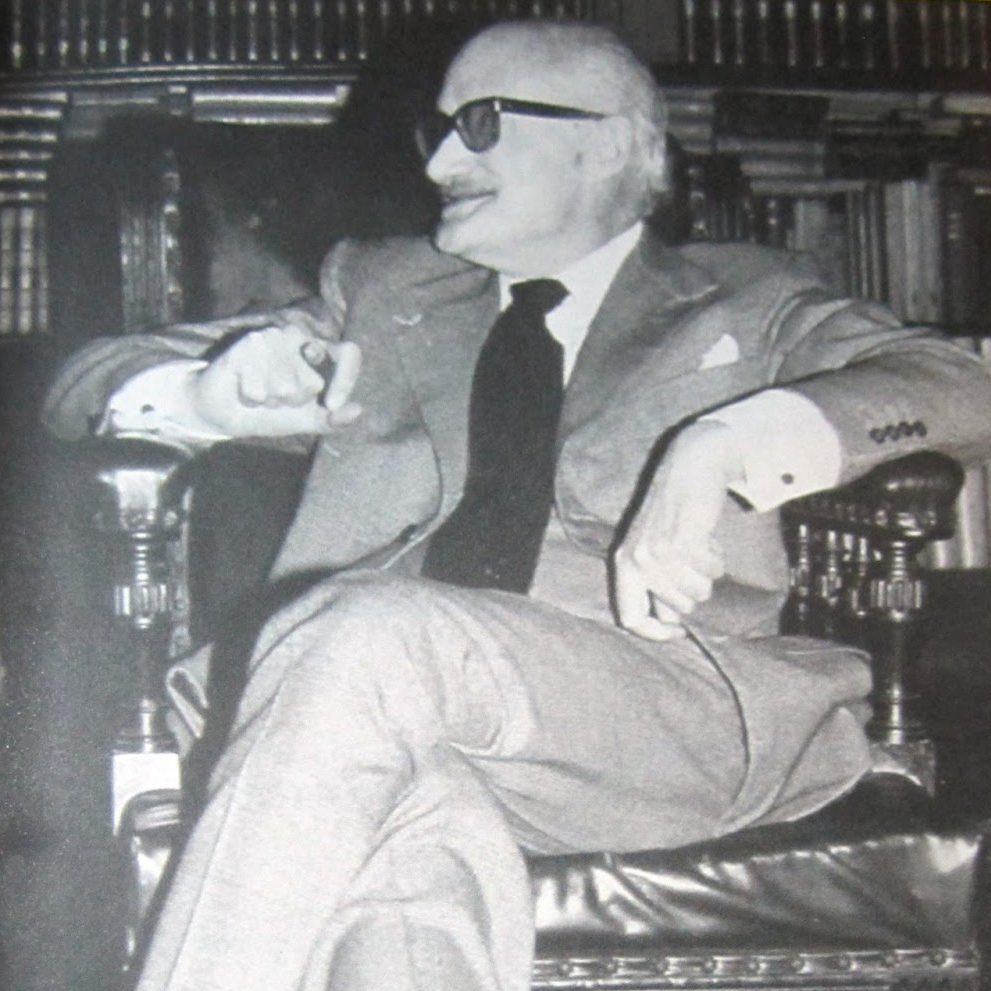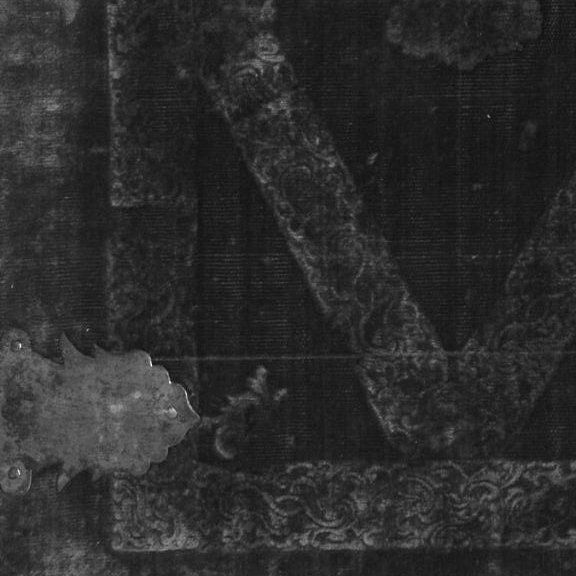NOTE: The Writing category has been updated with many new additions as well.
See the list of topic categories here.
The writer cannot pride himself on the successes he attains, but on the mistakes he avoids.
Simplicity attracts the writer when he learns that rhetoric can disguise his motives, but not the nature of his soul.
The opacity of a text tends to be the result of excessive trust in the intelligence of the reader.
The writer never confesses to anything except what the current trend allows.
There are certain vices of style that the writer cannot correct with new adjectives or different verbs, but only by changing his life.
Every writer comments endlessly on his brief original text.
There are never too many writers, only too many people who write.
Among unpopular writers, many do not deserve the tribute of unpopularity.
So many writers offer us their message, which turns out to be an empty envelope into which fate forgot to include any letter.
Only the word, the verbal expression, can save us from the mediocrity in which the trivial substance of our life drowns. Speaking nobly rescues us from the worst disaster. He who seeks to hide his misery or faults behind a solemn grandiloquence will soon betray his ridiculousness, but he who expresses his simple truth with crystalline purity transcends himself mysteriously.
The writer who is determined to make himself useful becomes accustomed, little by little, to telling lies.
The lexicon of the true writer is not in any dictionary.
Only the patient and industrious writer serves succulent delicacies to the reader.
The author of those books avoided by the public and despised by the cultured reader only need to tell themselves they possess a misunderstood excellence and proclaim themselves indifferent to the popularity that escapes them.
Revolutionary activity consoles that writer incapable of literary activity.
The insolence of certain Catholic writers is a salt that preserves their works from the decomposition to which their contemporaries have already succumbed.
A true writer is not the one who speaks to us with the charming voice of a lovely guest at a chance meeting, but the one who challenges us with the same voice with which we speak to ourselves in our solitude.
Literary history and critical studies, so abundant in these last 150 years, have led the writer to consider himself from the perspective of historians. And so, a certain simple and natural tone in writing has disappeared.
Yesterday the poet trusted the traditional adjective, today he trusts the unusual one. In neither case does the recipe replace talent.
A talentless writer- the eunuch in love.
Every great writer ends up serving those who would have irritated him the most.
Almost everyone who writes books does so because they lack self-confidence, because they don’t trust their own opinion. The mediocre, in fact, secretly knows himself to be mediocre, but hopes to be wrong and asks himself quietly: am I talented?
My writings are rough shavings made with the intent of hewing the twisted wood of my soul.
Gide is a critic whose time led him to write novels, and a humorist whose protestantism led him to preach.
Whatever society he is born in, the writer is always an outsider.
The writer should know that only a few of the many who look at him will actually see him.
If the general public has more interest in the life of the author than his work, it is because nothing is so rare as a sincere and pure love for letters, but in any life there can be something that moves us by its very humanity and that amuses us. Thus the intellectual snobbery that forces one to deal with literature is satisfied at a lower cost by the author’s biography.
On the other hand, for the passionate, meticulous, critical, and patient reader, seduced by the work, falls in love with the spirit of the author and easily gleans from the work the attitude of the author toward the world, which rightly seems to the reader to be the cause of the work and the true source of his own delight.
The writer should only speak for himself.
Biographies of writers tend to eliminate the person in order to busy themselves with his insignificant life.
It is not fair to reproach the writers of this era for their poor taste, when the very notion of taste has perished.
The writer who does not offer intellectual trifles for sale cannot complain of his limited success.
A genuine vocation will lead the writer to write only for himself:
first out of pride, then out of humility.
In the shadow of the brilliant painter, dozens of talented painters can grow; the shadow of the great poet, on the other hand, is lethal.
A writer is permitted to violate any rule of his language, as long as he knows why he violates it.
To what deserves a gloss, our contemporaries often devote an entire book.
If more writers cultivated patience, if they did not allow themselves to be carried away by a desire to express themselves, to produce perhaps out of fear, a fear that only work dispels- maybe we would have fewer authors and some excellent works would be lost, but the richness of the resulting works would be without compare.
The biographer must not confuse his commitment to telling us how with the ridiculous pretension of explaining why.
The novelist who writes more than one book is rare, regardless of the number of volumes listed in his bibliography.
The talent of the writer lies not in describing a person, a landscape, or a scene, but in making us believe he has done so.
The authentic writer does not seek perfection out of vanity, but out of courtesy to the reader.
He who longs to influence is verbose. Brevity is a sign of respect for the reader.
The writer capable of seeing clearly what is genuine and concrete can move unharmed among stupid ideas.
Words arrive one day in the hands of the patient writer like a flock of doves.
The writer indifferent to popularity does not pretend to be a contemporary of the writers of his time, but of the writers he admires.
The true poet searches less for new minerals than for lost veins.
Words are the true adventure for the authentic writer.
The writer is not debased by what he writes, but by the reader for whom he writes.
The people with whom we speak every day and our favorite authors cannot belong to the same zoological species.
Typically, a “writer” is an individual who writes well, but South American literature has taught us that a writer is an individual who writes.
There are many poets who call “poetry” what is merely form of intellectual irresponsibility.
A great writer dips into infernal ink the plume he has plucked from an archangel.
Today the idiotic book written about a great writer is preferred over his works.
The writer who does not try to convince us wastes less of our time, and sometimes he even convinces us.
The temptation to participate in political activity ceases to trouble the intelligent writer, once he finally understands that no intelligent text can manage to oust even a small-town mayor.
The frankness of some writers is merely the exhibitionist impulse.
The writer who feels his talent turning stale seeks political clientele.
Using traditional poetic material limits the great poet, but it is the only thing that assures the minor poet one or two miraculous triumphs.
No writer has ever been born who did not write too much.
Prolific writers are merely incontinent.
I do not hope to leave any grand work. The ones I wish to reach are an infinite distance from my hands. But I would like to leave a small volume that, from time to time, someone opens. A soft shadow that seduces a few. Yes! To send it through time, an unmistakable and clear voice.
Note: Dávila was a Colombian political philosopher and in the Latin church. His aphorisms are presented here for the purposes of enjoyment, study, and historical record, but do not necessarily reflect the opinions of this writer. For more information on Dávila, see this introductory post. For information on how to live your life, go to church and read the Church Fathers/Saints.
Featured image: Dávila’s notes



